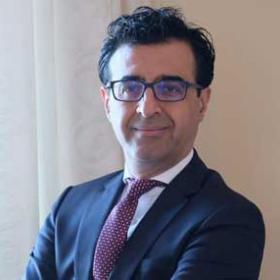
Kawa Hassan Talks Seventh Anniversary of Syrian Uprising
Kawa Hassan, who leads EWI's Middle East and North America Program, speaks to Deutsche Welle Radio's Arabic Service on the seventh anniversary of the Syrian uprising on March 15. Below are excerpts of his comments.
In the interview, Hassan highlighted the reasons that led to the fragmentation of the opposition.
"First of all, there is a historical factor, namely the authoritarian nature of the Syrian regime. The Assad regime, father and son, killed politics and civil society which made it extremely difficult for a strong opposition to emerge. Second, the intervention by regional and international powers in the conflict who have no interest in the emergence of a democratic Syria. Third, there is an objective factor that has to do with the nature of the opposition.
The democratic national opposition leaders were either marginalized, killed or fled the country. As a result, the more militaristic, radical Islamic fundamentalist groups prevailed.
The scorched earth policy by the regime partly led to the militarization of the uprising. But the absence of real opposition leaders who are capable of reading and understanding the complex geopolitics of the uprising has led to the empowerment and the prevailing sectarian and fundamentalist armed groups like ISIS and Al-Qaeda. As a result, it is almost impossible to go back to the peaceful phase of the uprising.
Assad is winning battles but he is not winning the peace. Assad has succeeded in destroying Syria. But there are no winners in this conflict, only losers. And the biggest loser is the Syrian people."
Access the interview here (in Arabic).
Photo: "Syria 2007 190 Palmyra تدمر" (CC BY-SA 2.0) by David Holt London

